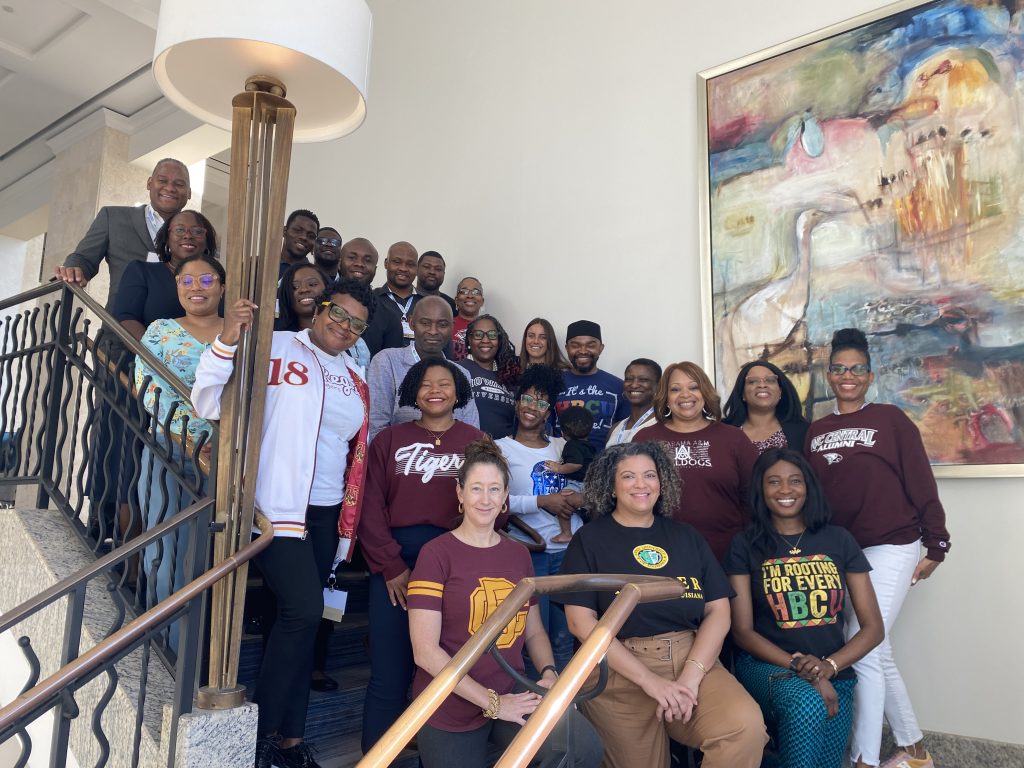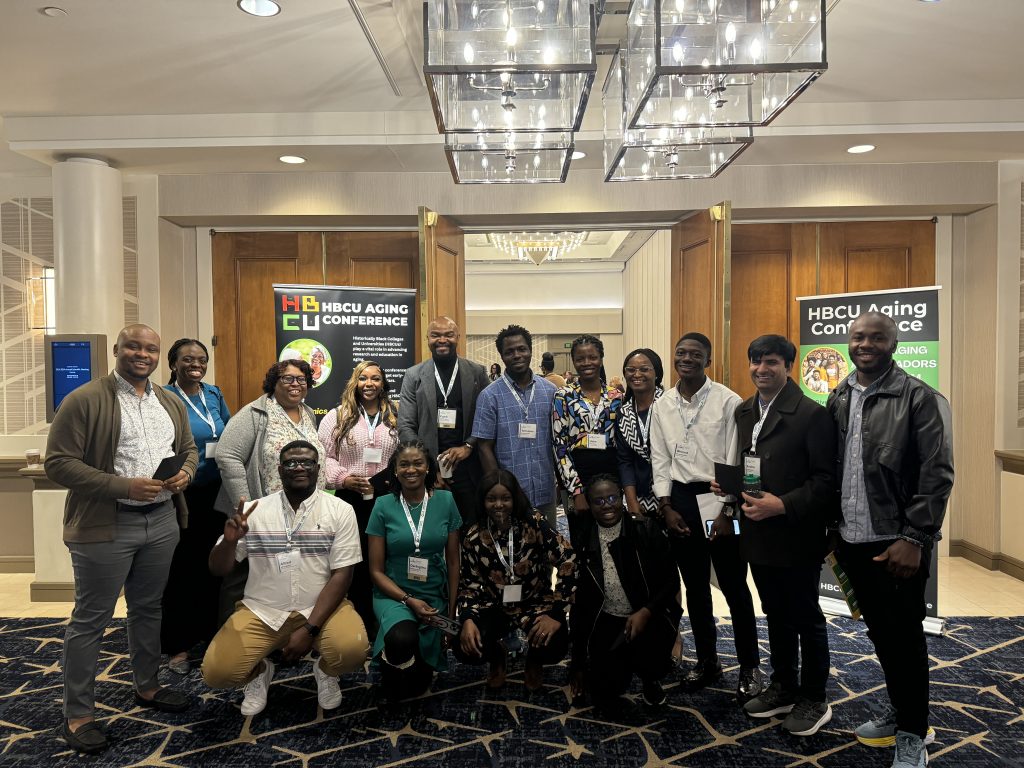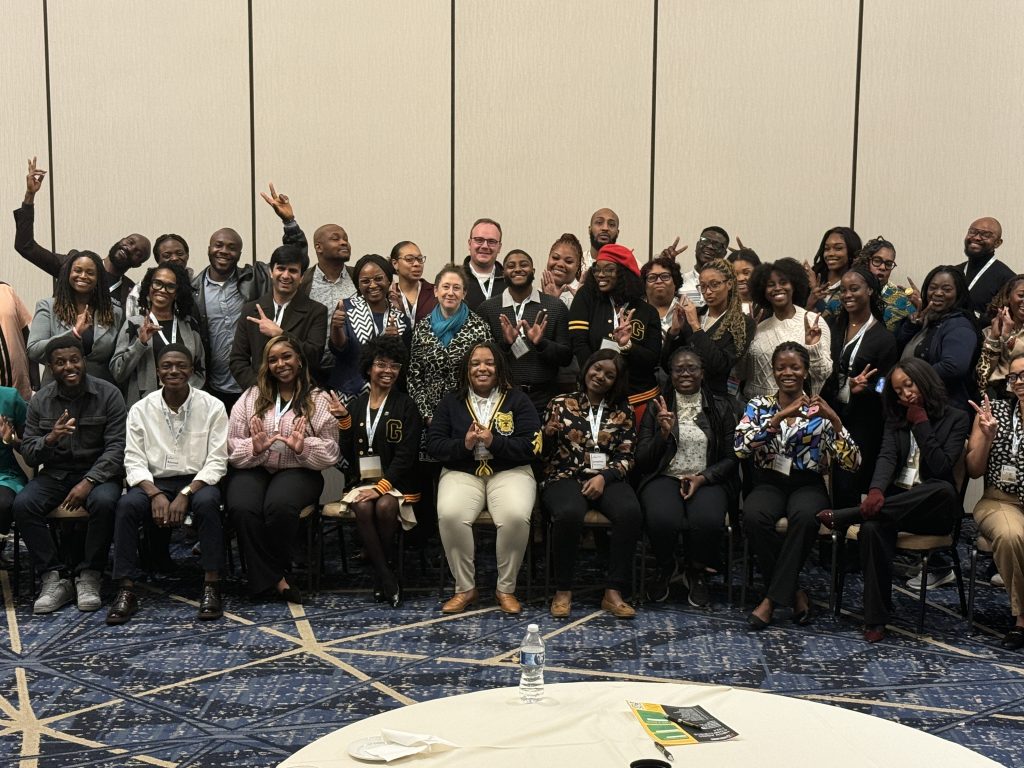About The Conference

The HBCU Aging Conference is co-organized by the Black in Gerontology and Geriatrics Inc. (BIGG) and the Gerontological Society of America’s (GSA) HBCU Collaborative Interest Group.
The conference aims to provide emerging and early career scientists from HBCUs with opportunities for collaborative mentoring/partnership building, facilitated networking opportunities with mid-to senior-level scholars in gerontology or related disciplines, best practices in conducting research, publishing, advocacy, professional development, and leadership experiences and opportunities in gerontology or related disciplines.
History of HBCUs
HBCUs represent approximately 2.3% (101 total) of all institutions of higher learning. Established in the late 1800s (majority founded between 1865-1900), HBCUs originally provided education and training options for students of African descent, either free-born or emancipated slaves.
Present day, HBCUs have developed programs and majors, with most institutions offering undergraduate (59%), graduate (41%), doctoral (28%) degrees.
HBCUs produce a large percentage of Black students earning undergraduate degrees in engineering (18%); biological sciences (31%), mathematics (31%); agricultural science (42%); and health professions (17%).
Eleven HBCUs are amongst the top 15 institutions graduating the most Black students earning degrees in the physical sciences; and of the top 10 academic institutions producing Black PhDs in science and engineering, eight are HBCUs.

Role of HBCUs in Gerontology
HBCUs have an important role in preparing emerging scholars and professionals entering the aging field. This is recognized with the Gerontological Society of America’s Program of Merit, a voluntary program of evaluation of institutions offering gerontology programs and/or health professions programs whose curricula integrates gerontology/geriatrics content.
The Program of Merit designation gives gerontology and health profession programs an Academy for Gerontology in Higher Education (AGHE) “stamp of excellence”. Of the 17 institutions receiving this honorable distinction, two are HBCUs (Bethune-Cookman University; Winston-Salem State
University).

Purpose of HBCU Aging Conference
The HBCU Aging conference is designed to target early-career HBCU scholars, including undergraduate students, graduate students, post-doctoral fellows, and faculties. To inspire interest and commitment among HBCU scholars, this conference will provide a community of aging experts such as researchers, practitioners, national and grassroots organizations, advocates, and participating scholars.
The conference is intentionally created to offer spaces where early careerists in the field of aging can continue to critically unpack the ‘nuanced nature’ of Black aging — ranging from social vulnerabilities resulting from racism and ageism— to resilience and thriving even when confronted with systemic disadvantages.
The conference will create pathways for HBCU scholars to successfully be part of the aging field by providing an avenue for knowledge exchange, sustainable skills advancement, leadership, accessing training supports, and mentorship.

Get in Touch
Connect with us on Instagram @HBCUaging!
Subscribe to our newsletter to receive updates from us
Website built by Mattheos Branding © 2023
